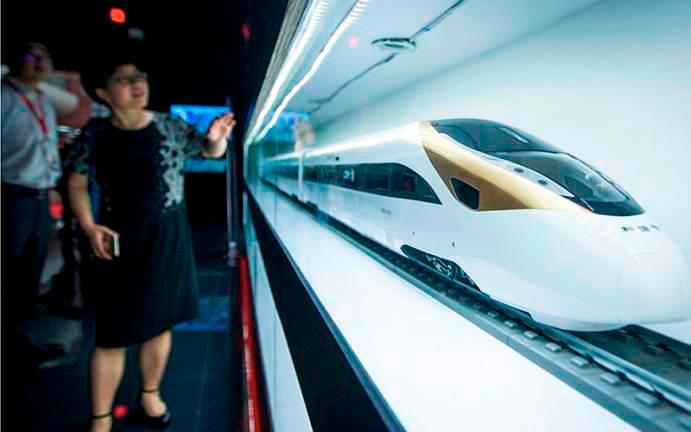PETALING JAYA: Another new development has added to the already numerous controversies surrounding the High-Speed Rail (HSR) project between Kuala Lumpur and Singapore.
Reports have emerged that the line will now end in Johor rather than Singapore and, according to a report in the news portal The Malaysian Insight, Malaysia is prepared to pay up to RM300 million in compensation for abandoning its southern neighbour.
As expected, some have raised questions about the rationale for scaling down the project but others seem unperturbed by the change, preferring to see the benefits rather than the drawbacks.
Economist Datuk Dr Rajah Rasiah sees it as “odd” considering that the objective of the HSR is to enhance connectivity between Kuala Lumpur and Singapore.
“A large number of people travel between the two countries every day and stopping the train in Johor will not reduce the daily commute to Singapore,” he told theSun.
However, he concedes that there are benefits to be reaped as well. “At the very least, Malaysia will have greater autonomy in engaging project partners to handle construction, and this will make it easier to handle maintenance issues later,” he said.
Singapore and Malaysia agreed to the project in 2016, but the huge price tag - RM60 billion to RM70 billion - drew a lot of criticisms.
The original plan was for eight stops from Kuala Lumpur through Putrajaya, Seremban, Ayer Keroh, Muar, Batu Pahat and Iskandar Puteri before terminating in Singapore - a distance of 350km.
However, then prime minister Tun Dr Mahathir Mohamad announced in 2018 that the government would not proceed with the project given its high cost.
But in June, Senior Minister for Trade and Industry Datuk Seri Mohamed Azmin Ali said both countries have agreed to extend the deferment of the project until Dec 31.
Then in November, current Prime Minister Tan Sri Muhyiddin Yassin announced that Malaysia would continue with the project without Singapore.
He followed this up with another statement on Dec 2 saying that both countries have gain “a good understanding” of each other’s position on the project.
Rajah believes the issue is not so much the benefit the HSR will bring, but more the lack of transparency.
“When so much money is involved, you need to be more open,” he said.
Transport planning expert and managing director of MDS Consultancy Dr Rosli Azad Khan said that with Singapore out of the picture, Malaysia can now insist that all component suppliers set up their production facilities here.
“This will ensure that at least some of the money stays in the local economy,” he told theSun.
He said this will not only create employment for Malaysians but also enhance efforts to develop local talents and expertise.
He said materials could also be sourced locally, and there is always the possibility that the line can eventually be extended northwards, all the way to Bangkok.
“Connectivity between Malaysia and Singapore is not an issue. It can be adequately met by other means, such as the rapid transit system, the Johor Causeway and the Second Link.
He said that including Singapore in the package would only enlarge the catchment of passengers for Changi Airport since Malaysians living in the south would rather fly from Changi where there are more flights and more choices compared with KLIA.
“That would be more to Singapore’s benefit rather than our own. Why surrender out international air market to Changi at our own expense?” he asked.













